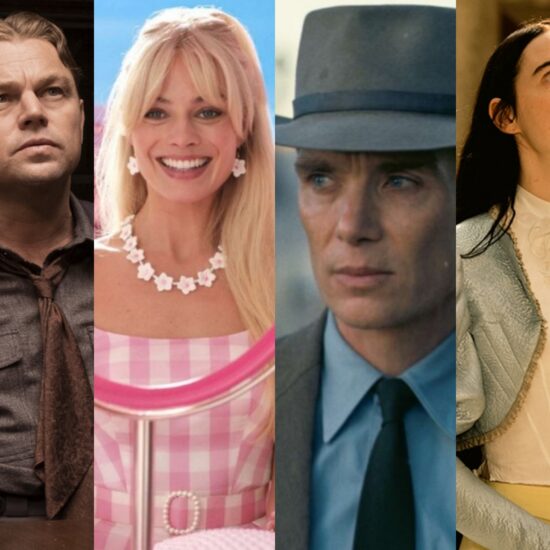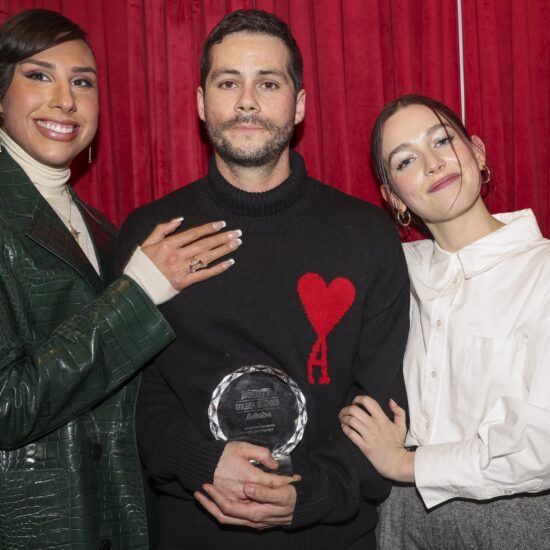Back in 1990, the downfall of European pop duo Milli Vanilli seemed like an open-and-shut case of disgrace.
They — Fabrice Morvan and Rob Pilatus — were the lip-synching scofflaws, convicted in the court of public opinion of fraud against a generation of FM Top 40 radio listeners robbed of our precious sense that music and its artistic authorship were directly linked. The punishment? Permanent professional ostracism and punchline status — though when Pilatus died of an accidental drug overdose in 1998, the reality became even more punitive.
Milli Vanilli
The Bottom Line
Hovers intriguingly rather than landing decisively.
Luke Korem’s new documentary Milli Vanilli attempts to give the “Blame It on the Rain” non-singers 106 minutes of re-evaluation. Were they perpetrators or victims? If they were some gradation of the latter, who were the actual villains? If they were some gradation of the former, did the punishment fit the crime? What did Rob and Fab actually do, what was their actual sin and why did audiences respond the way they did?
Maybe Korem’s primary objective is simply to make you think more about Milli Vanilli than you ever have before. In that, it’s a total success. It’s more of a failure when it comes to trying to answer some of those big questions and engage in direct accountability, and I don’t know if I buy most of its cultural conclusions. But have I been thinking a weird amount about Milli Vanilli since watching this documentary?
Reader, you know it’s true.
To recap: In 1989 and 1990, a German-French pair took the American charts by storm. Their songs were hella catchy. Were they already kinda silly? Heavens yes, but when has anybody cared about that before? People began to care when Milli Vanilli won the best new artist Grammy in 1990, defeating Indigo Girls, Tone Loc, Neneh Cherry and Soul II Soul. This was an affront to our general decency, as no silly or disreputable artist had ever previously won a Grammy. I’m guessing.
Just months after that win, it was revealed that Rob and Fab did none of the singing on their breakout album. Horror ensued, and the name “Milli Vanilli” was never able to recover its former luster.
Told with more tonal sincerity that your average Behind the Music installment, but without a particular voice of its own other than “general seriousness” (which is to say that it’s neither sensationalistic nor mocking), Milli Vanilli boasts a solid assortment of talking heads.
Morvan is candid in a self-serving way. His play for sympathy includes a contested account of initial reservations when it was suggested that he and Pilatus would only be the frontmen in a charade, while his convoluted explanation for why they somewhat deserved their Grammy is thoroughly ridiculous. Generally, though, he presents Fab and Rob — so confident in their media presentation at the time — as inexperienced kids who got in over their heads and then, once success came, didn’t want to return to poverty. Who came blame them?
Insight into their earliest days comes courtesy of Ingrid Segieth, assistant to German producer Frank Farian and recounter of an origin story in which neither non-singer expressed any reservations at all, as well as Charles Shaw, Brad Howell, Linda Rocco and Jodie Rocco, actual vocalists on “Girl You Know It’s True” and more. In terms of their American breakout, we hear from an assistant manager, three threatening Arista Records executives, and, naturally enough, MTV’s “Downtown” Julie Brown.
If you accept Korem’s perspective that Rob and Fab were, at worst, the smallest of fish in this mendacious pond, the documentary suffers from an absence of the people powerful enough to be the actual villains. Farian didn’t do interviews for the documentary. Arista’s Clive Davis didn’t do interviews, and while at least one of the three Arista suits implies he generally must have known, nobody’s going to come out and accuse the titan of fraud. Former Musical Academy head Michael Greene, circuitously accused of a pay-for-play deal to let Milli Vanilli lip-sync at the Grammys, is absent, as is their late manager Sandy Gallin, who might have made the payment. Basically, Korem presents Milli Vanilli as puppets, but the most powerful of the people who might have pulled the strings aren’t here.
That’s frustrating because the smartest of the cultural observers featured in the documentary — critic Hanif Abdurraqib is an executive producer as well — want to make bigger points about exploitation in the music industry and Korem obviously would love to force a reckoning of some sort. But there are too many unconnected dots. It’s easy to make the right inferences about a scandal in which a group of Black performers were marginalized, erased or hung out to dry by a group of white executives who presumably got rich and faced no visible consequences themselves, but the documentary has to hover rather than land. That leaves Morvan as a victim worthy of empathy, but short of inherently deserving any triumphant redemption.
Morvan, it turns out, is a totally serviceable singer now and he’s able to capitalize on nostalgia to carve out something resembling a career. The documentary capitalizes on the same nostalgia to bring complexity to what felt, 30 years ago, like a simple story. It could have benefited from even more complexity.














